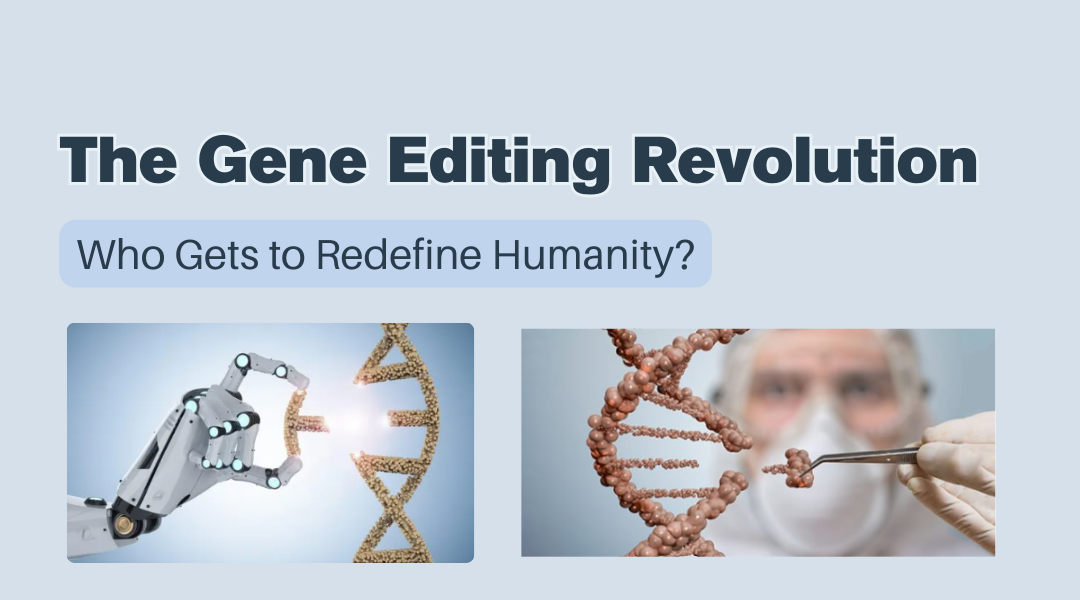Introduction: A Double-Edged Breakthrough
Gene editing isn’t science fiction anymore—it’s happening. CRISPR and other technologies are unlocking the ability to rewrite DNA, offering cures for diseases like sickle cell anemia and cystic fibrosis. But with this power comes a minefield of ethical questions. What happens when we can tweak intelligence, immunity, or even appearance? Who controls these tools? And how do we prevent a future where genetic privilege divides society even further?
The Uncomfortable Questions We Can’t Ignore
1. Playing with Future Generations
Editing sperm, eggs, or embryos means altering not just one life but an entire bloodline. Imagine a world where parents—or governments—decide which traits get passed down. Should we have that authority over people who can’t consent?
2. The Rich Get Stronger (Literally)
Right now, cutting-edge gene therapies cost millions. If only the wealthy can afford enhancements, we risk creating a genetic aristocracy—where some are born “optimized” and others left behind. How do we stop this from becoming the next frontier of inequality?
3. Therapy vs. Upgrade: Where Do We Draw the Line?
Fixing a deadly genetic disorder? Most agree that’s ethical. But what about editing for taller kids, sharper memory, or disease resistance? Once we start down that path, will parents feel pressured to “keep up” in a genetic arms race?
The Social Fallout We’re Not Ready For
1. “Sorry, Your DNA Disqualifies You”
Insurers could deny coverage based on genetic risks. Employers might screen out candidates prone to anxiety or aging. Without strict protections, your genome could become a liability.
2. The Ghost of Eugenics Returns
History is littered with horrors in the name of “improving” humanity—forced sterilizations, Nazi experiments. Today’s tools are precise, but the same dangerous thinking lurks: Who decides what’s a “flaw” worth editing out?
A Real-World Warning: The CRISPR Twins Scandal
In 2018, Chinese scientist He Jiankui announced the birth of the first gene-edited babies, modified to resist HIV. The backlash was instant:
- Scientists called it reckless—the edits could have unintended health consequences.
- Ethicists slammed the lack of consent—the twins will live with changes they never agreed to.
- Governments scrambled to respond, with some calling for global bans on heritable edits.
The case exposed how easily one rogue experiment could force humanity into uncharted territory.
Who’s Making the Rules? (Hint: Not Enough People)
Right now, regulations are patchy. The WHO urges caution, but enforcement is weak. Some experts demand a global moratorium until we agree on:
- Safety thresholds—how do we guarantee no harmful side effects?
- Access and equity—how do we prevent genetic apartheid?
- Public consensus—shouldn’t society, not just scientists and corporations, shape these policies?
Two Sides of the Argument
“This Could End Suffering”
- Proponents argue we have a duty to use gene editing to eliminate diseases like Huntington’s or muscular dystrophy. Why let children suffer when we have the tools to help?
“We’re Tinkering with What Makes Us Human”
- Critics warn that commodifying traits could erode diversity and dignity. What if “perfect” becomes the default—and differences are seen as defects?
Conclusion: The Future Isn’t Inevitable—It’s a Choice
Gene editing isn’t just about science; it’s about values. Do we prioritize progress over precaution? Individual choice over collective good? The answers will define the next century. One thing’s clear: We need transparency, inclusivity, and humility to navigate this—before the technology outpaces our ethics.
